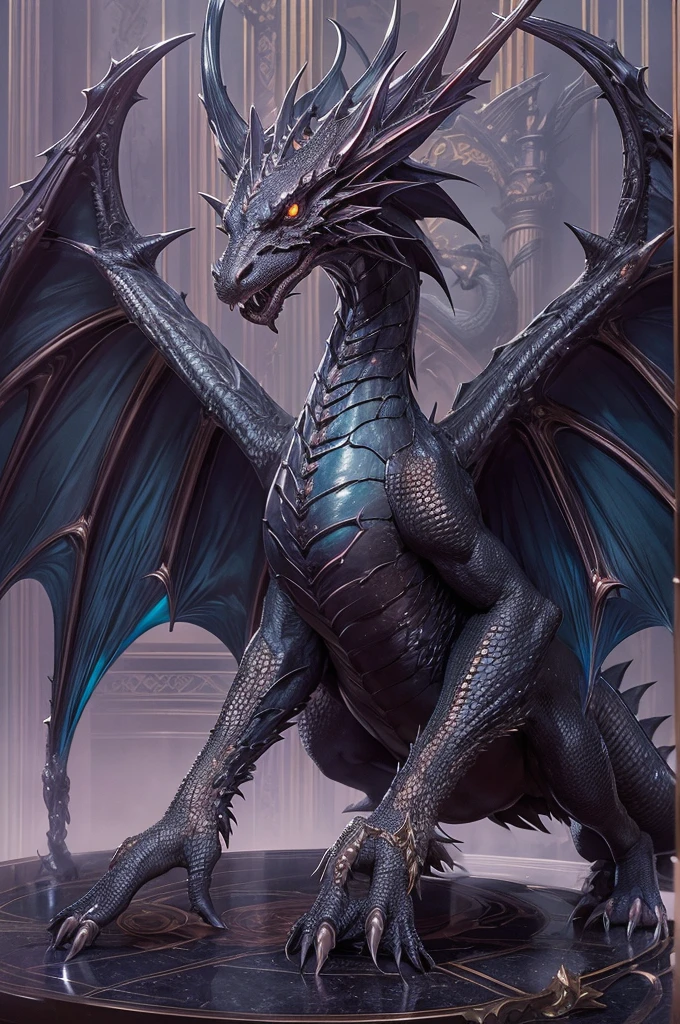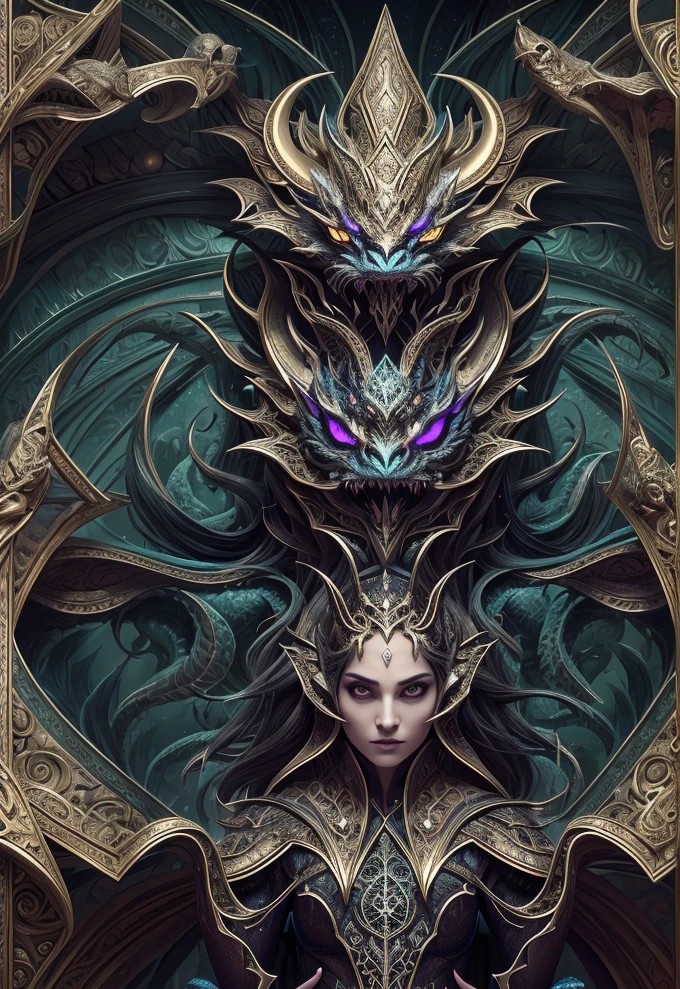THE RELEVANCE TO THE WIZARD

Does Mythos have anything to do with magic or with becoming a powerful wizard?
Yes! Absolutely.
Make it your business to incorporate lessons learned and knowledge gained from mythos or Mythology.
Mythology and the stories of gods can have a profound impact on our lives and our connection to the divine, both through our conscious experiences and our subconscious mind. Here’s how myths and stories can make our connection to the gods feel real:
Archetypes: Myths often contain archetypal characters, symbols, and themes that resonate with the human psyche on a deep level. These archetypes, first explored by psychologist Carl Jung, can be seen as universal patterns that are present in the collective unconscious. When we encounter these archetypes in mythological stories, they can evoke powerful emotions and experiences that connect us to the gods and the divine.
Metaphor and symbolism: Myths often communicate profound truths about human nature and the nature of reality through metaphor and symbolism. By engaging with these stories, we can gain insights into our own lives and our relationship with the divine. This deep understanding can help us feel connected to the gods and the greater forces at work in the universe.
Ritual and tradition: Many cultures have religious and spiritual practices based on mythological stories, which help to create a sense of connection to the gods. By participating in these rituals and traditions, we can feel a sense of continuity and belonging, fostering a deeper connection to the divine.
Personal growth and transformation: Myths often contain narratives of personal growth, transformation, and the hero’s journey. By relating to these stories, we can gain insights into our own personal challenges and growth, as well as our connection to the divine. This connection can be felt as we undergo our own personal transformations, inspired by the gods and the mythological stories we encounter.
Art and creativity: Myths and stories have inspired countless works of art, literature, music, and other creative expressions. By engaging with these works, we can feel a connection to the divine through the creative process, experiencing a sense of transcendent beauty and meaning that connects us to the gods.
Dreams and the subconscious: Mythological stories and symbols can appear in our dreams and subconscious thoughts, allowing us to access deeper layers of our psyche and connecting us to the divine. This connection can help us explore our inner worlds, find guidance, and gain insights into our lives and our relationship with the gods.
In summary, mythos can make our connection to the gods feel real by tapping into universal archetypes, using metaphor and symbolism to convey deep truths, fostering personal growth and transformation, and inspiring creative expression. By engaging with mythological stories and symbols, we can deepen our connection to the divine and gain a greater understanding of our place in the universe.

MAGIC IN MYTHOLOGY
- Prometheus (Greek Mythology): Prometheus, a Titan, stole fire (symbolizing knowledge and power, including magical abilities) from the gods and gave it to mankind. As a result, humans gained the power to create and use tools, which enabled them to become more like the gods.
- Hermes Trismegistus (Hermeticism): Hermes Trismegistus, a mythical figure who is a combination of the Greek god Hermes and the Egyptian god Thoth, is said to have given humans the gift of Hermetic wisdom, which includes magical knowledge and practices. The Emerald Tablet, a legendary artifact, contains the secrets of this wisdom.
- The Book of Enoch (Jewish and Christian Mythology): In this apocryphal text, a group of angels called the Watchers descended to Earth and taught humans various arts and sciences, including magic and enchantments. Azazel, one of the Watchers, is said to have taught humans how to create weapons, while others taught them the secrets of astrology, healing, and divination.
- The Sefer Raziel HaMalakh (Jewish Mysticism): This book, attributed to the archangel Raziel, is said to contain the secrets of the universe, including magical knowledge. According to legend, Raziel gave the book to Adam and Eve after they were expelled from the Garden of Eden, and it was passed down through generations of biblical figures.
- Solomon and the Djinn (Islamic and Jewish Mythology): King Solomon is said to have been given a magical ring by the archangel Michael, which granted him the power to control and command djinn (supernatural creatures in Islamic and Middle Eastern folklore). Solomon used this power to build his temple and gain knowledge of the secrets of the universe.
- Thoth (Egyptian Mythology): Thoth, the god of wisdom and writing, was believed to have given humans the knowledge of magic, particularly in the form of spells and incantations. The Book of Thoth, a legendary artifact, is said to contain the secrets of this magical knowledge.
- Odin (Norse Mythology): Odin, the chief of the Norse gods, sacrificed one of his eyes to gain wisdom and magical knowledge from Mimir’s well. He also discovered the runes, a powerful magical alphabet, which he shared with humanity. Runes are believed to have the power to shape reality, heal, and protect.
- The Sibyls (Ancient Mediterranean): The Sibyls were prophetesses in ancient Greece, Rome, and the Near East who were believed to have received their powers of prophecy and magic from the gods. Apollo, the Greek god of prophecy and knowledge, is often associated with the gift of magical powers to the Sibyls.
- Orpheus (Greek Mythology): Orpheus, a legendary musician and poet, was said to have been given magical powers by the gods, particularly Apollo and the Muses. His music and poetry were so enchanting that they could charm animals, plants, and even the gods themselves.
- The Taoist Immortals (Chinese Mythology): In Chinese mythology, there are stories of humans who attained immortality and magical powers through the practice of Taoism. These immortals, called xian, were believed to have received their abilities through divine intervention or by discovering secret practices and elixirs.
- Amergin (Irish Mythology): Amergin, a druid and bard in Irish mythology, was said to have been given magical powers and knowledge by the gods. His poetry and incantations were believed to be able to control the elements, shape reality, and command supernatural beings.
- Viracocha (Inca Mythology): Viracocha, the creator god in Inca mythology, was believed to have given humans the knowledge of arts, sciences, and magic. He taught the first Inca people the skills they needed to thrive, including agriculture, metallurgy, and the use of magical powers to control their environment.
- Prometheus (Greek Mythology): Prometheus, a Titan, stole fire (symbolizing knowledge and power, including magical abilities) from the gods and gave it to mankind. As a result, humans gained the power to create and use tools, which enabled them to become more like the gods.
MYTHOS AND MYTHOLOGY
Mythos and mythology are closely related terms but have slightly different meanings.
Mythology refers to the collection of myths, stories, and legends that belong to a particular culture, religion, or tradition. These stories often involve supernatural beings, such as gods, heroes, and creatures, and they seek to explain the origin of the world, natural phenomena, or human experiences. Mythology also encompasses the study of these stories and their significance within a culture.
Mythos, on the other hand, is a term used to describe the underlying narrative or belief system that informs a specific mythology or a set of stories. Mythos is the broader framework that ties together individual myths, giving them a shared context and meaning. It can also refer to the collective imagination or worldview of a culture or society as expressed through its mythology.
While mythos and mythology are closely related and often used interchangeably, mythology generally refers to the specific stories themselves, while mythos refers to the overarching narrative or belief system that ties those stories together.